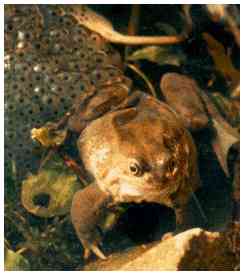
A module of the BA Philosophy programme
Institute of Environment Philosophy and Public Policy | Lancaster University | e-mail philosophy@lancaster.ac.uk
Where I am saying - loosely - 'types of thing', Descartes uses the term 'substance'. We need to worry about what exactly he meant by this term.
The term 'substance' is used in philosophy very confusingly. It is used to mean different things in different contexts. And some of these things are not very clear in themselves.
One meaning is: a substance is a thing, in contrast to the properties of a thing.
Try listing some examples - things on the left, properties on the right.
This is a distinction we use quite painlessly, at least a lot of the time.
You might try though listing problem cases.
Descartes makes this distinction, and he uses the term 'substance to make it.
He says a 'substance' is that which has properties, qualities or attributes.
(See the Reply to the second objections to Meditation 2.)
Is a thing more 'real' than a property?
Take the property being red. If no objects were red, it might be claimed that there would be no such thing as being red.
In this sense, a property is 'dependent' on the existence of a possible bearer. 'Redness' is a property of objects, and thus is 'dependent' on them.
Today it is not obvious that this difference is of deep significance.
But for Descartes it is.
'By substance we can understand nothing other than a thing which exists in
such a way as to depend on no other thing for its existence.'
Principles of Philosophy 1.51 Cottingham, p.177.
So you have Descartes making the distinction between things and properties, and saying there is an unequal relationship between these two. Properties depend on things, but things do not depend on properties.
What is the significance of being 'independent' in this sense?
It sounds significant.
One possible suggestion would be to say the independent things are real, and the others aren't.
(But what does this amount to?)
Or it might be suggested that it points to different classes of reality - independent things have strong reality and dependent things reality in a weaker form …
And what is real clearly connects with what exists. Naively one might think that these two are just two ways of talking about the same thing: to say a thing is real is to say it exists. If this were so, if we were prepared to talk of different degrees of reality we would also have to talk about different degrees of existence.
 |
||
| Last revised 03:11:04 |
||
| A module of the BA Philosophy programme Institute of Environment Philosophy and Public Policy | Lancaster University | e-mail philosophy@lancaster.ac.uk |